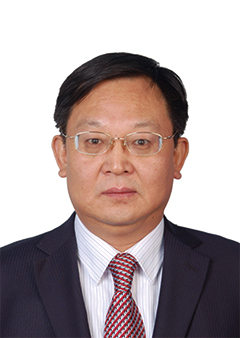Expert Profile
Mr. LIU Senlin
2019/3/26 13:13:03

Mr. LIU Senlin, born in March 1965,gained his bachelor’s degree in nucleus physics in Sichuan University in July 1987 and won his master’s degree and doctoral degree in radiation protection from CIAE respectively in 1995 and in 2002. Mr. Liu currently serves as a Chief Expert of CNNC, and also as vice chairman of China Society of Radiation Protection and executive committee member of Asian-Oceanian Federation of Radiation Protection.
Liu is a scholar of impressive academic attainments in areas including evaluation methodology & mode of public exposure, monitoring techniques for nuclear & radiation emergency, minimization of radioactive waste, monitoring and evaluation of natural radiation and radiation protection from transuranium nuclides. He has made significant contributions to nuclear & radiation emergency and environment protection during construction and operation of China Advanced Research Reactor (CARR) and China Experimental Fast Reactor (CEFR). As a celebrated expert on radiation safety in China, Mr. Liu is now engaging in application of artificial intelligence to radiation protection.
Liu has been awarded 5 prizes for progress in defense science and technology, and 4 prizes of science and technology from CNNC. He has published 15 monographs and more than 80 papers of which 30 have been indexed by SCI and EI.
Abstract: In this paper the environmental impact of nuclear power generation technology will be systematically discussed from the perspective of nuclear energy and its nuclear fuel cycle system. At present, nuclear power generation has become one of the main forms of peaceful use of atomic energy. It provides a sustainable energy with characteristics of the efficient and reliable, low-carbon and cleanness for human being’s development and advancement.
With the support of the Sino-France cooperation program on nuclear energy, the Chinese Academy of Engineering, the National Academy of Technologies of France and the French Academy of Sciences formed a joint team of experts in 2018 to continue the research on nuclear energy and environmental issues. A Life Cycle Analysis (LCA) is used to assess the environmental impacts, both radioactive and non-radioactive, of nuclear power generation to the nuclear fuel cycle from the uranium mining and milling, nuclear power operation, spent fuel and radioactive waste management.
The basic results show that: first, from the perspective of LCA method, nuclear power generation has the advantage of nearly zero CO2 emissions, which is much lower than that of coal-fired power generation, while Nuclear Power Plants (NPPs) do not emit CO2 and other Greenhouse Gases (GHS)during their operations. Second, from the perspective of the whole energy chain of nuclear power generation, the environmental radiation impact mainly comes from the front-end of nuclear fuel cycle, namely uranium mining and milling, while the environmental radiation impact during the normal operation of NPPs is about 1% of the exposure to natural background radiation, and is far lower than the limit, set by national authority or recommended by international organizations, of 1 mSv per year for public exposure. Third, from the point of radwaste management, the final disposal of the low and medium level of radioactive waste from NPPs has been mature, reliable engineering technology and its practice, and for the long-term storage of spent nuclear fuel and the final disposal of high-level radioactive waste, now it has available engineering solutions, and it is also in constant research and development of new waste treatment and disposal engineering technology, such as Accelerator Driven System (ADS) transmutation technology can significantly reduce the amounts of long life radioactive waste. Fourth, about the environmental impacts of nuclear power plant accident, since the Fukushima Daichi nuclear power plant accident, the safety design of nuclear power technology has significantly increased, such as the Hualong One NPPs and high-temperature gas-cooled reactor, which can physically eliminate the possibility of large amounts of environmental releases, the size and its scope of the environmental impact of NPPs accident can be properly controlled.

